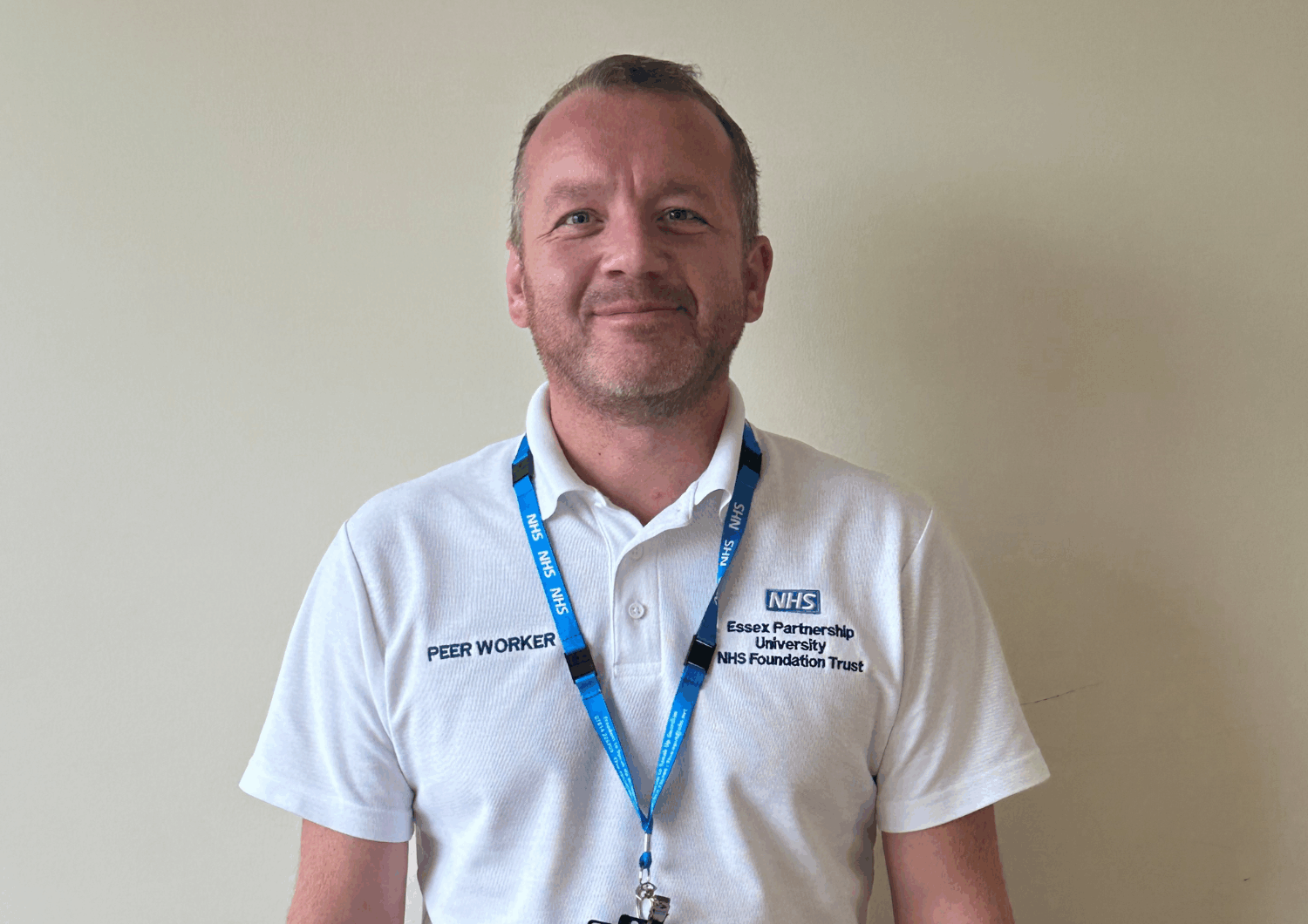
A peer worker is drawing on his struggles with addiction and mental health to help others find hope, purpose and a voice in their treatment journeys.
This International Men’s Day, Dan Buck explains how he is using his lived experience to support patients and help transform the way inpatient care is delivered at Essex Partnership University NHS Foundation Trust (EPUT).
Dan works across three wards at Brockfield House, a secure mental health unit in Wickford, and is part of an expanding team of lived-experience ambassadors who support patients through every step of their care and treatment.
He is one of more than 20 peer workers introduced as part of EPUT’s Time to Care programme which focuses on ensuring all patients receive personalised and therapeutic care to support their long term recovery.
All peer workers have had experience of mental health challenges, and use these experiences and empathy to support patients and ensure their voices are at the heart of the Trust’s services. They provide one-to-one and group support, help run activities, and work closely with clinical staff to ensure patients’ individual needs are being met.
EPUT’s secure services care for people between 18 and 65 years old, who have been detained under the Mental Health Act or Court Order.
“I went through 20 years of struggling to understand my own mental health,” Dan shares. “I self-medicated with alcohol for a long time before hitting rock bottom about five years ago. That experience lit a fire in me to help others in similar situations.”
After completing a nine-week community rehabilitation programme in Braintree, Dan became involved with the Essex Recovery Foundation, a lived-experience charity set up to improve addiction and recovery services. As a community engagement worker, he helped create recovery spaces across Essex where people could support one another. When the peer worker role came up at Brockfield House, he knew it was the next step in his journey.
“This is what I’ve always wanted to do – use my experience to shine a light for others,” says Dan. “I can show people that recovery is real and achievable, and that there’s always a way forward.”
Dan describes his role as non-clinical but deeply collaborative. He spends time on the wards engaging with patients, often starting with simple conversations that grow into meaningful support. He also attends multidisciplinary team (MDT) meetings alongside psychiatrists, psychologists, occupational therapists and other clinicians, advocating for patients and helping them express their needs and goals.
“I might support someone to put in writing a request to start a course, or sit with them while they attend an MDT meeting so they feel more confident,” Dan explains. “Sometimes after meetings, patients can feel overwhelmed or confused. I’m there to help break things down, reassure them, and keep their motivation going.”
His presence also helps to bridge the communication gap between patients and clinical teams. “Because we’re non-clinical and have lived experience, patients often open up to us more easily,” Dan says. “We can then advocate for them in a professional way and help translate clinical language into something more understandable.”
What Dan enjoys most is seeing patients rediscover a sense of community and self-confidence. “Seeing someone laugh again or take part in activities like sports or education – that’s what it’s all about,” he says. “It’s about helping people reconnect with who they are.”
He believes the introduction of peer workers and activity coordinators to the wards has been a major success. “If we weren’t here, patients would only engage with clinical staff. Rehabilitation is more than that – it’s about connecting with real life, with people, and with the future.”
Dan’s work also has a positive impact on the wider team. “Clinical staff can sometimes be pulled in many directions,” he notes. “We can step in to offer support or activities. That continuity really helps patients feel valued and seen.”
Dan recalls one instance where a patient’s mental health improved dramatically after he helped them set up an Open University course immediately after an MDT meeting. “Later, the psychologist told me how much of a difference that had made. It’s those moments that remind me why this role matters.”
“We’re helping to create a community on the ward – a space where people feel understood, supported, and inspired to move forward,” he says. “That’s the power of lived experience.”